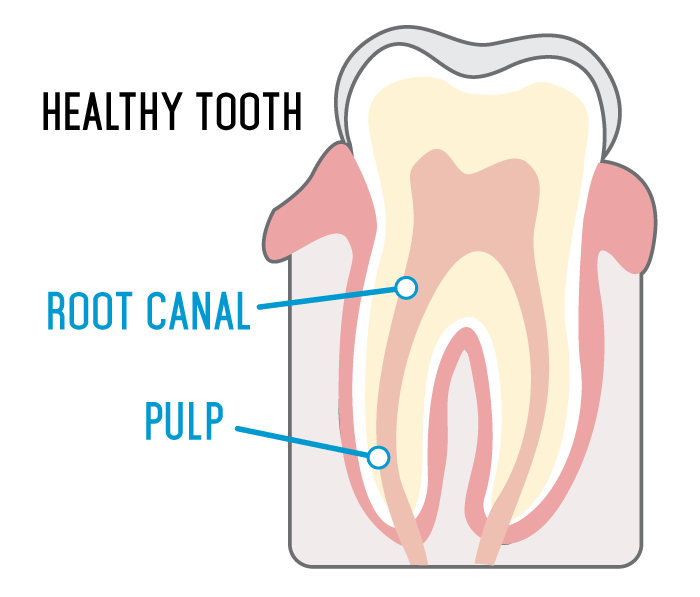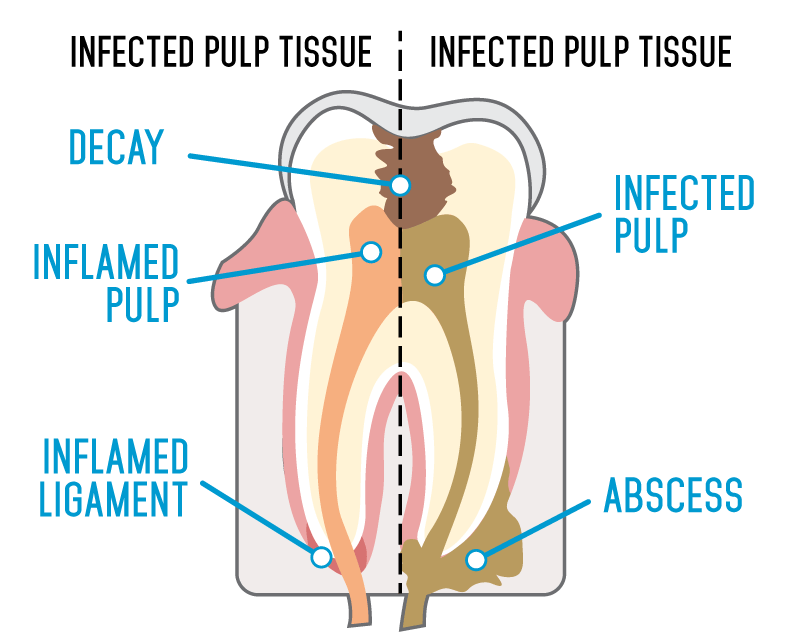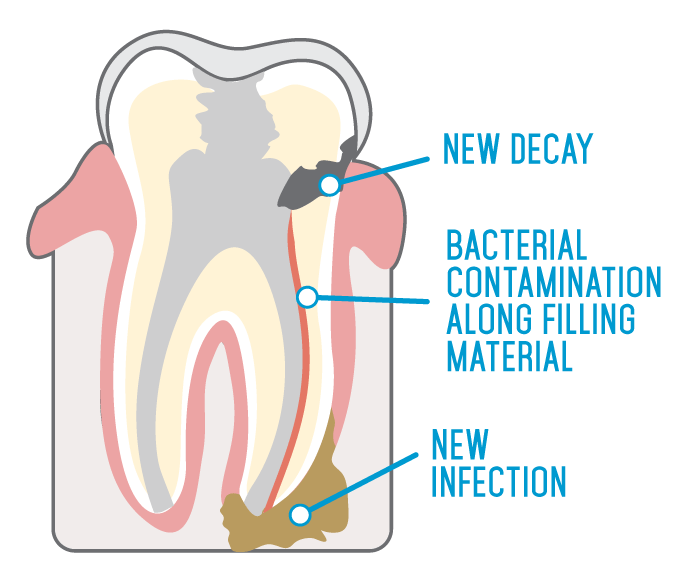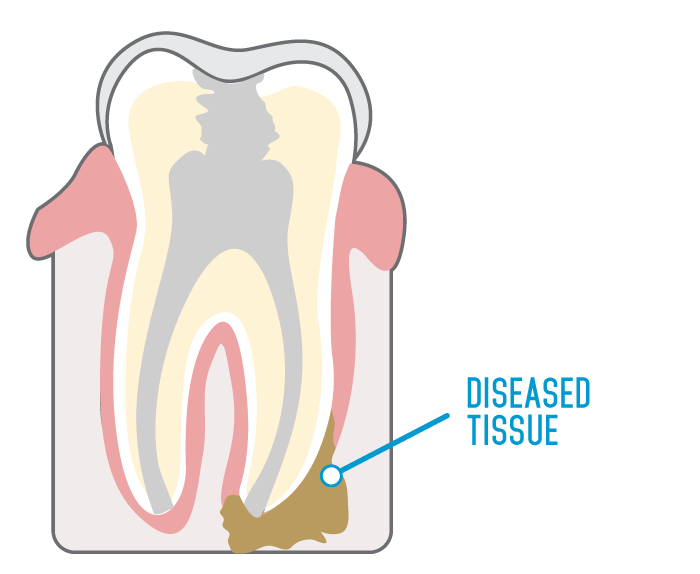What happens during root canal treatment? Learn more about this quick, comfortable procedure that can relieve your pain and save your natural tooth.
There’s no need to be worried if your dentist or endodontist prescribes a root canal procedure to treat a damaged or diseased tooth. Millions of teeth are treated and saved this way each year, relieving pain and making teeth healthy again.
Inside your tooth, beneath the white enamel and a hard layer called dentin, is a soft tissue called pulp. This tissue contains blood vessels, nerves and connective tissue, which help grow the root of your tooth during its development. A fully developed tooth can survive without the pulp because the tooth continues to be nourished by the tissues surrounding it.
Modern endodontic treatment is nothing like those old sayings! It’s very similar to a routine filling and can usually be completed in one or two appointments, depending on the condition of your tooth and your personal circumstances. Getting a root canal is relatively painless and extremely effective. You’ll be back to smiling, biting and chewing with ease in no time.Saving the natural tooth with root canal treatment has many advantages:
- Efficient chewing
- Normal biting force and sensation
- Natural appearance
- Protects other teeth from excessive wear or strain
Cone Beam CT Imaging
Imaging technology allows us to take a 3D image of a focused area of your mouth to assess the tooth and surrounding structures. Once the imaging is captured, we can essentially dissect the tooth visually to thoroughly understand the presence and severity of disease and the anatomy of the tooth that requires treatment.
Helpful Tip:
Toothaches
Simple toothaches can often be relieved by rinsing the mouth to clear it of debris and other matter. Sometimes, a toothache can be caused or aggravated by a piece of debris lodged between your teeth. Avoid placing an aspirin between your tooth and gum to relieve pain as the dissolving aspirin can actually harm your gum tissue. If your toothache persists, contact your dentist as soon as possible. They can also give you a referral to an endodontic specialist like us.















